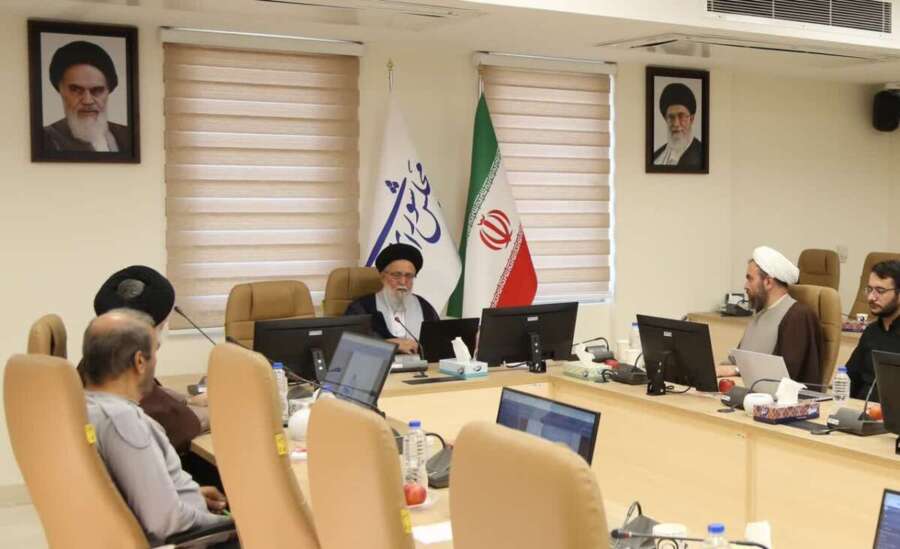Note: According to the information base of the Research Institute of Contemporary Jurisprudence Studies, on Sunday, November 9, 2025, the sixty-fifth session of the “Method on Sundays” series on the topic “The Position of Convention and Public Satisfaction in the Legislative Process Based on Jurisprudence” was held. This session was presented by Ayatollah Seyyed Mohammad Ali Modarresi—the advanced lecturer in legislative jurisprudence—and moderated by Hujjat al-Islam Dr. Mohammad Reza Gharibi.
At the beginning of the session, the moderator, referring to the topic’s importance in the current legislative space of the country and previous experiences and articles on “The Position of Convention in Imami Jurisprudence and Iranian Law,” stated the session’s goal as rereading the concepts of convention and public satisfaction and determining their practical frameworks in the law-making process and execution of rulings.
In continuation, Ayatollah Modarresi presented his remarks. At the start of his speech, he engaged in conceptualizing convention and public satisfaction, emphasizing the need to distinguish between “convention” as habit and socially conventional matter and “public satisfaction” or people’s preference. He considered convention a collective and continuous matter that applies in understanding word meanings and thus plays a role in inferring terms, but alone is not considered religious evidence.
The advanced lecturer in legislative jurisprudence added that in jurisprudential sources, the term “convention” appears multiple times, and some jurisprudential schools assign greater weight to convention; however, in Imami jurisprudence, convention merely of the present time not connected to the infallible’s era does not have absolute authority and must be compared with other evidence and foundations.
He enumerated three levels for convention’s role in the jurisprudential and legislative system:
- The domain of primary religious rulings: At this level, convention usually cannot reverse a religious ruling, except in cases where convention is connected to the infallible’s era or a means to discover rational conduct.
- The domain of executing rulings: In execution, “public satisfaction” can be effective as an interest-measuring factor; especially if unthoughtful execution of a religious ruling leads to greater corruption.
- The domain of governmental/legislative rulings: In drafting governmental laws outside the circle of primary rulings, convention and public preference can have a tangible and constructive role, and the legislator must consider the proportions of interest and public satisfaction.
Ayatollah Modarresi further reminded that public satisfaction should not, by becoming a substitute criterion for Sharia, lead to “abrogation” or weakening of religious rulings. He emphasized that whenever public satisfaction conflicts with a religious ruling, interest measurement and outcome balancing should be used: If resisting the execution of a ruling causes greater corruption or the risk of public order collapse, a more conservative approach may be adopted at the execution level, but this situation does not mean turning people’s satisfaction into a religious basis.
He referred to the hijab issue and counted the difference between “the religious ruling of hijab” and “the regime’s approach to non-hijab” as one of the instances of this topic, and by referring to historical experiences and examples from Amir al-Mu’minin’s (peace be upon him) conduct, noted: In some cases, strict execution of a ruling has been overlooked due to public interest; but it must be noted that these behaviors are not a “general rule” for changing religious rulings, but reactions to specific conflict conditions and dangers.
In summary, the presenter emphasized the necessity of further research in the three mentioned domains and called for turning theoretical discussions into practical frameworks so that law-making and policy-making in the Islamic system are compatible with interests and minimal corruption.

